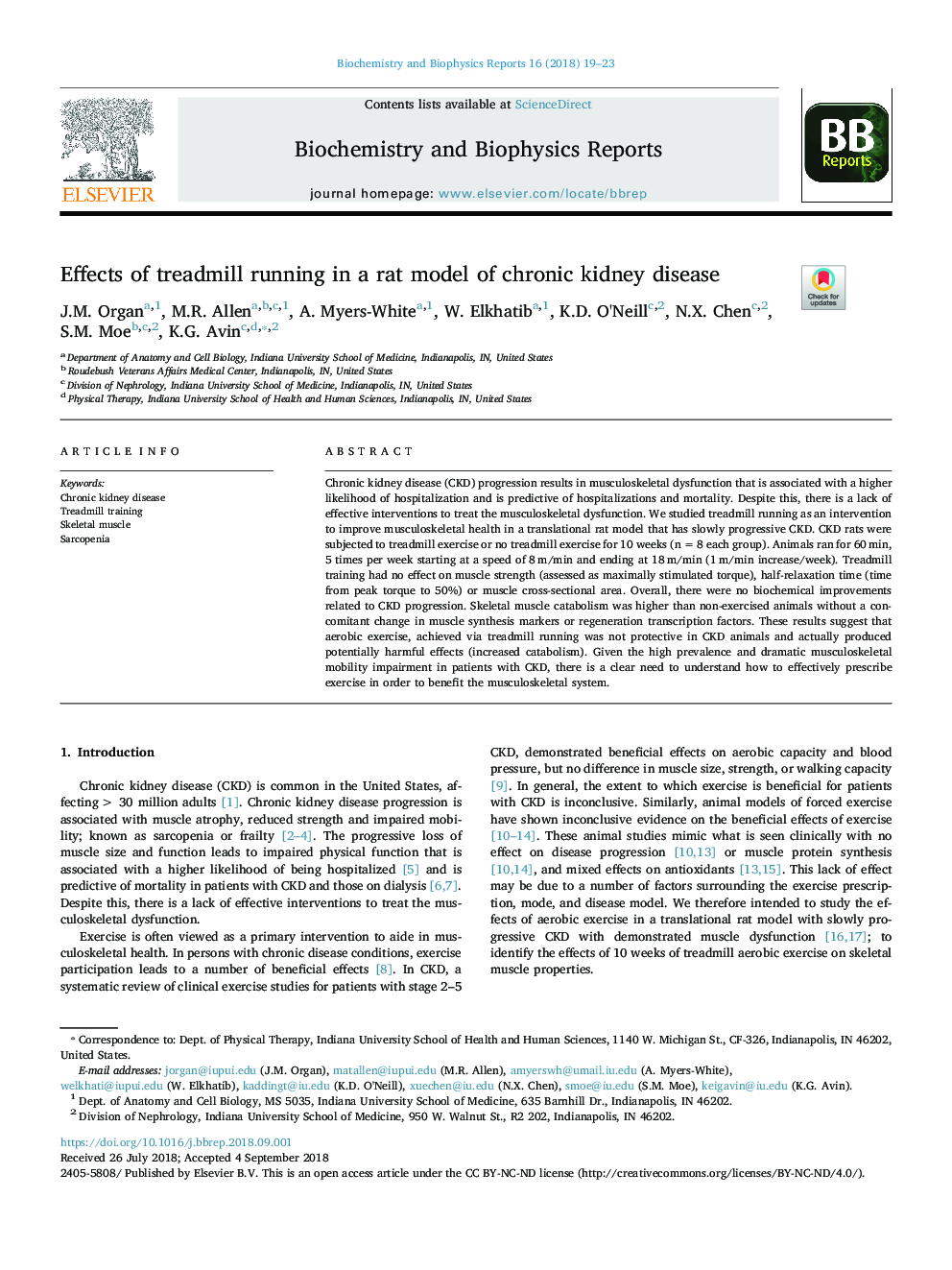| Article ID | Journal | Published Year | Pages | File Type |
|---|---|---|---|---|
| 10148131 | Biochemistry and Biophysics Reports | 2018 | 5 Pages |
Abstract
Chronic kidney disease (CKD) progression results in musculoskeletal dysfunction that is associated with a higher likelihood of hospitalization and is predictive of hospitalizations and mortality. Despite this, there is a lack of effective interventions to treat the musculoskeletal dysfunction. We studied treadmill running as an intervention to improve musculoskeletal health in a translational rat model that has slowly progressive CKD. CKD rats were subjected to treadmill exercise or no treadmill exercise for 10 weeks (nâ¯=â¯8 each group). Animals ran for 60â¯min, 5 times per week starting at a speed of 8â¯m/min and ending at 18â¯m/min (1â¯m/min increase/week). Treadmill training had no effect on muscle strength (assessed as maximally stimulated torque), half-relaxation time (time from peak torque to 50%) or muscle cross-sectional area. Overall, there were no biochemical improvements related to CKD progression. Skeletal muscle catabolism was higher than non-exercised animals without a concomitant change in muscle synthesis markers or regeneration transcription factors. These results suggest that aerobic exercise, achieved via treadmill running was not protective in CKD animals and actually produced potentially harmful effects (increased catabolism). Given the high prevalence and dramatic musculoskeletal mobility impairment in patients with CKD, there is a clear need to understand how to effectively prescribe exercise in order to benefit the musculoskeletal system.
Related Topics
Life Sciences
Biochemistry, Genetics and Molecular Biology
Biochemistry
Authors
J.M. Organ, M.R. Allen, A. Myers-White, W. Elkhatib, K.D. O'Neill, N.X. Chen, S.M. Moe, K.G. Avin,
